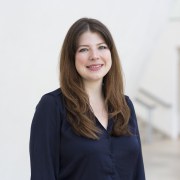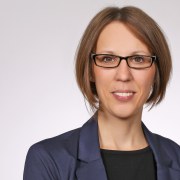The new normal of guided tours
Guided tours provide a special synergy between our visitors, our exhibits, and our staff. They play an important role in the engagement that occurs in science centres and can provide a personal connection between the visitors and our exhibits. In times of a pandemic, such tours have to be modified and, in some cases, cancelled. How can we create the same synergies during these times?
Mark and Inga will present results from their different studies about guided tours, looking at the skills guides require and what visitors expect. Tania and Ollie, from two very different facilities, will present their concepts for guided tours and how these have been modified in the current circumstances. Then, in two breakout rooms, you can share your experience, discussing the competencies required by guides, expectations of visitors and the practical challenges and opportunities faced in adapting guided tours. Inputs will be collected in a virtual “experience board,” available after the session.
Session speakers
Head of Visitor and Educational Research
They will present an interview study (n = 40 docents, 10 for each of 4 different museum types), which aims to identify characteristic features of museum tours. Findings give insight into the intentions of people who conduct museum tours for adults in Germany, which benefits they think real guided tours have, and what ideas they have about the expected visitors and their expectations of the tour. Additionally, results of an online survey will be presented that show what visitors see as dos and don’ts for guided tours during the pandemic.
Guided tours are an important tool for museums to connect with their visitors. In my research I explored what competencies museum guides need to give an entertaining and educative tour? The profile of competencies consists of 45 competencies divided over four main categories of competence: 1) Handling the group within the museum environment; 2) Communication skills; 3) Knowledge and Pedagogy; and 4) Professionalism. Furthermore, based on the competency profile two tools that could foster the personal development of guides were developed and tested.
Garching bei München
Germany
Since opening in 2018, over 12000 visitors have participated in guided tours at the ESO Supernova. Tours are typically led by active astronomers or engineers, and this close link to real and current science is a key part of the concept of the facility, which is located at the headquarters of the European Southern Observatory. Since the pandemic, these tours have not been possible, even when the centre was open. Tania will present the different ways in which alternatives have been/will be provided.
Since 2015, London Transport Museum (LTM) has built a highly successful commercial tours operation, inviting visitors into disused Tube stations, Hidden tunnels and secret spaces across London’s transport system. The pandemic brought these in-person tours to a halt. LTM quickly pivoted to a digital offering with a programme of paid for virtual tours initially looking at hidden stations and spaces which could never be visited on in-person tours. Ollie will take you through the process of this rapid pivot to virtual tours including the challenges and learnings resulting in this market leading programme.





